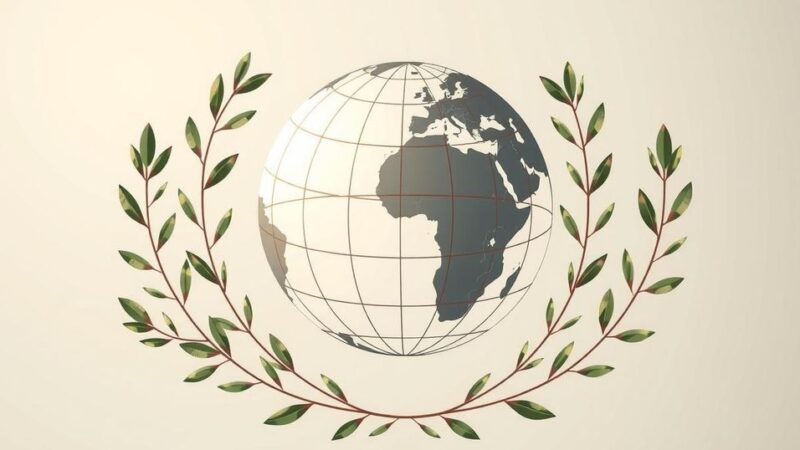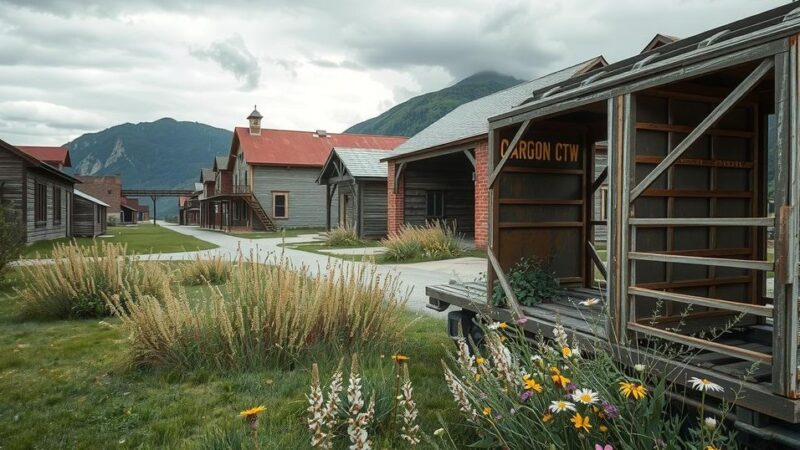A group of white South Africans protested outside the U.S. Embassy in Pretoria, supporting President Trump while claiming racial discrimination by their government. Their gathering follows Trump’s executive order focusing on Afrikaners, who are concerned about land expropriation laws. The South African government denies these claims and maintains its policies aim to rectify historical injustices, while ongoing race-related tensions persist.
On Saturday, several white South Africans gathered outside the U.S. Embassy in Pretoria to express their support for President Donald Trump, claiming they are victims of racial discrimination by their own government. Demonstrators, mainly from the Afrikaner community, held placards stating “Thank God for President Trump,” and criticized perceived racist policies of the South African administration targeting the white minority.
This assembly was prompted by an executive order issued by Trump a week prior, which reduced aid to the Black-led South African government. In his order, Trump asserted that Afrikaners, descendants of Dutch colonial settlers, faced discrimination from new legislation enabling the government to expropriate private land. The government, however, contends that the law does not discriminate based on race and criticized Trump’s statements as distorted misinformation.
President Trump claimed that land was being unjustly taken from Afrikaners, whom he referred to as “racially disfavored landowners.” However, no land has yet been expropriated under the law. Additionally, Trump proposed plans to offer refugee status in the United States to Afrikaners, a subset of South Africa’s white minority population.
In a recent Parliamentary address, South African President Cyril Ramaphosa emphasized that any forced removal of individuals from their land would not be tolerated again, recalling the painful history of dispossession endured by Black South Africans during apartheid. He clarified that the new land law does not permit arbitrary confiscation, but instead aims to enable land redistribution for the public good.
The Trump administration’s denunciation of South Africa highlights ongoing tensions surrounding the country’s efforts to rectify historical injustices stemming from white minority dominance. Government statistics reveal that a disproportionate amount of farmland is owned by whites, despite their presence constituting merely 7% of the population.
During the protest, demonstrators also referenced the affirmative action policies implemented post-apartheid in 1994, aimed at providing opportunities for Black South Africans. These policies, known as Black Economic Empowerment, have generated considerable discontent among some members of the white population.
Elon Musk, a prominent adviser to Trump, has long criticized the South African government as being anti-white. His recent difficulties in securing a license for his Starlink satellite service in South Africa—due to failure to comply with affirmative action standards—have further intensified speculation regarding his motivations.
While race dynamics have historically influenced South African politics, the nation has made significant strides towards reconciliation since the end of apartheid. The current government comprises a coalition of ten Black-led and white-led political parties that collaboratively address the country’s complex issues.
In summary, the gathering of white South Africans in Pretoria underscores their perception of being victims of government-sanctioned racism, as they align with recent claims made by President Trump. The South African government maintains that its policies are aimed at rectifying historical inequalities without racial discrimination. The situation reveals ongoing tensions within the country regarding land ownership and affirmative action, while also reflecting the complexities of race relations in a post-apartheid society.
Original Source: www.cnn.com






